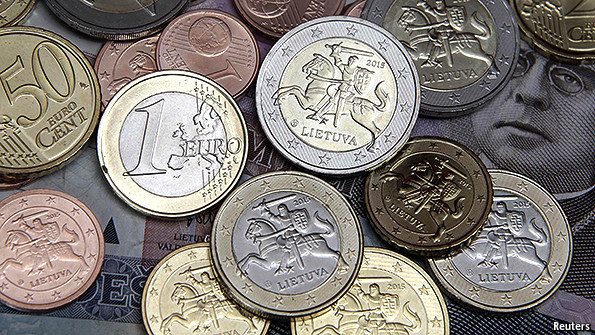Lithuania’s euro expectations
Published on 2 january 2015Estonia adopted the euro in 2011, and Latvia in 2014. The experience has been positive for them.
Vilnius hopes that by becoming the 19th member of the euro bloc, Lithuania's trade will get a boost and its borrowing costs will fall.
In the 28-member European Union, 337 million people now share a common currency, with three million
Lithuanians. They have gone through a years-long stretch of tough budget cuts which led 150,000 of them to leave the country.
Now the government forecasts a long-term rise in GDP of 1.3 percent linked to the adoption of the euro.
It is anticipating GDP growth of 2.9 percent for 2014, helping (if confirmed) the country to recover from a 15 percent contraction in 2009 at the height of the global financial crisis.
At least one agency (Fitch) expects the economy to grow by 3.5 percent this year, three times as fast as the euro zone as a whole. Lithuania's credit rating is now well into investment grade, despite rising political tensions.
IG market analyst Alastair McCaig underscored: "There is certainly a long-standing history of insecurity being felt by many of these Baltic nations very much lying in the middle between Russia and the West, and I think any further allegiance they can have with the western business environment would further strengthen their sense of security."
Some 60 percent of Lithuania's exports go to EU partners today, 20 percent to Russia.
In a determined drive for energy independence from its former Soviet supplier, Lithuania acquired a giant liquefied natural gas vessel in October, which makes importing from Norway a competitive option.
Source: EuroNews


